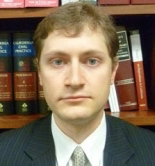Grinberg: No Jurisdiction to Hear Constitutional Challenges to Section 4700
Tuesday, August 7, 2018 | 0
I bring to your attention the matter of Wilson (deceased) v. Securitas Security Services USA, a writ-denied decision.

Gregory Grinberg
Applicant had sustained an admitted injury, and the ultimate award for permanent disability was 61%. Applicant died about a year and a half after the date of injury from non-industrial causes. Labor Code section 4700 says “Neither temporary nor permanent disability payments shall be made for any period of time subsequent to the death of the employee.”
Just think about that for a second. Assuming max earner status, a 2012 injury would pay $230 per week, and 61% permanent disability would result in $82,627.50. As applicant passed just a year and a half after his injury, and assuming at least some period of temporary disability, there may have been some $70,000 or so (roughly estimated) of unpaid PD.
Applicant’s heirs challenged Labor Code section 4700 on constitutional grounds, arguing that application of section 4700 constituted “unjust enrichment” for the insurer. Although fairly grim, this is an accurate statement. But, technically speaking, doesn’t the non-industrial death of any applicant relieve an insurer of future medical care obligations?
In that sense, though unfortunate, the non-industrial death of a claimant results in a limitation of exposure for the insurer.
On reconsideration, the Workers' Compensation Appeals Board affirmed the judge's application of section 4700. It further rejected the constitutional argument on the basis that, as an administrative law body, it lacks jurisdiction to make determinations about the constitutionality of a statute.
The Court of Appeal likewise denied review.
In this particular case, applicant had accepted an offer to return to work after his injury and died while still an employee. In such an instance the employer was in a position to immediately notify the insurer, and the defendant was able to move swiftly to terminate PD benefits.
Gregory Grinberg is workers' compensation defense attorney at the Law Office of Gregory Grinberg, based in the San Francisco Bay Area. This post is reprinted with permission from Grinberg's WCDefenseCA blog.




Comments